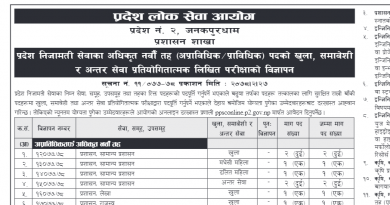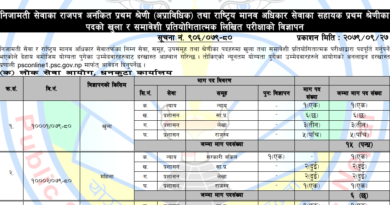Latest Nayab Subba Syllabus 2081/82 : NASU Syllabus 2081
The Public Service Commission has changed the syllabus of Nayabb Subba (NASU ). The Public Service Commission has revised the curriculum with the aim of bringing in talent. Before this, the Public Service Commission had removed the objective question of the third paper for Nayab Subba and kept the official knowledge. In which the Nayab Subba had a separate syllabus for administration, parliament, and law and a separate syllabus for the revenue group.
This time the Public Service Commission has changed the syllabus of many posts towards technical and non-technical. On the non-technical side, there are three posts Section Officer, Nayab Subba, and Kharidar. The subject has not been removed from the current syllabus. The syllabus is the same as before, but before the marks of the first paper were added, and now the marks of the first paper are not added. Previously, 40 marks were enough to pass the first paper, but from the 2081/82 advertisement, i.e. according to the changed syllabus, 45 marks are required to pass.
It is known that the purpose of the Public Service Commission to change the curriculum is to induct skilled manpower into the civil administration of Nepal. This modified syllabus will help the candidate who is good in written papers.
The advertisement for the Nayab Subba post will be released on the last Wednesday of the month of Paush, and the updated syllabus will apply to this 2081/82 vacancy as well. At this syllabus, 45 marks should be scored to pass the first paper. In the syllabus of Nayab Subba, there will be objective questions in the first paper, in which there will be 30 questions from general knowledge and 20 questions from IQ. Similarly, there will be subject knowledge in the second and third papers, i.e. writing style. A second paper will be the same for all and a separate paper for the third paper. In the second paper, geography, economic conditions, constitution, economic administration, and laws are included, while for the third paper, there is knowledge related to related work and laws for separate papers.


